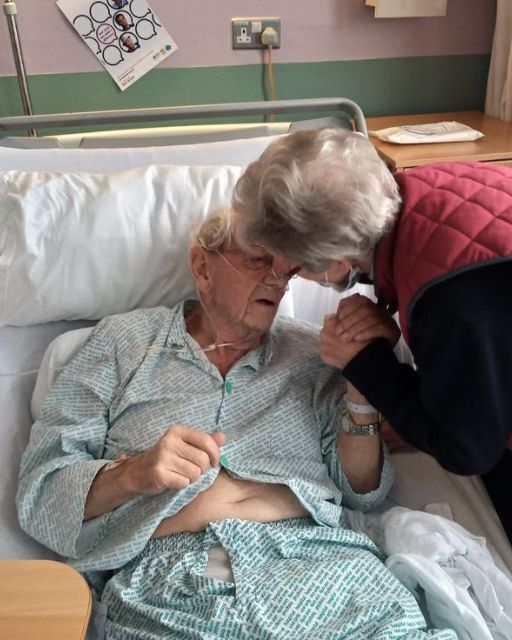
I met Elias when I was 39. He was 52—warm, attentive, and the kind of man whose presence made you feel secure. We got married a year later, and my love for him grew in ways I never thought possible.
Then came the diagnosis.
Stage 4 pancreatic cancer. Fast-moving. Ruthless.
For two years, I became his full-time caregiver. I fed him, bathed him, held his hand through unbearable nights. His children, Maya and Jordan, only stopped by occasionally. Their jobs were “too demanding,” and they admitted they couldn’t bear to see their father that way. But I stayed. Every moment. Until the end.
The very day after the funeral, they came to the house—our house.
“We’re selling,” Jordan said, seated in Elias’s favorite chair like he owned it. Arms crossed, face cold.
Maya barely looked up from her phone. “Dad left everything to us. You need to move out by Friday.”
I thought they were joking. “Elias would never do that.”
But Jordan dropped a folder on the coffee table—a will, signed and official. The house, the accounts—everything had been left to them.
“You can take your clothes,” Maya added, as if she were doing me a kindness.
I stared at the documents, my heart in freefall. “But I was his wife. I—”
“Yeah,” Jordan cut in. “You’re not our mom.”
Just like that, I was erased.
A week later, I stood outside with two suitcases while strangers toured what had been my home, admiring the “original hardwood floors” I had scrubbed with aching knees.
Then my phone buzzed.
A text from an unknown number.
“Check the storage unit on Fremont. Locker 112. Dad wanted you to have it.”
My breath caught. Elias had never mentioned a storage unit. And I had no idea who sent the message.
The next morning, I rented a car and drove to the storage facility. It wasn’t far, but every block felt like a mile. I braced myself for disappointment—or a cruel trick.
At the office, the manager gave me a key after verifying my ID. “Locker 112 is yours now,” he said kindly.
I walked down the rows until I found the unit. My hands shook as I turned the key and lifted the door.
Inside were stacked boxes and a single wooden chest.
The first box held photo albums—snapshots of our best days. Beach vacations. Quiet birthdays. Sunday mornings. Tucked among them were letters addressed to me, written in Elias’s handwriting. I sank to the floor, cross-legged, heart breaking all over again as I reached for the first one.
Leave a Reply